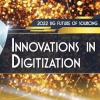Advantages of Artificial Intelligence in Enterprise Contract Review and Analysis
Contracting, common for every company, is something that few companies do efficiently or effectively. The process of reviewing contracts and legal documents is manual, tedious and error-prone, exposing organizations to legal risks if not well managed. The financial consequences can also be severe. KPMG estimates that inefficient contracting causes firms to lose up to 40 percent of value on a given deal, depending on circumstances.
Despite its business impact, contract review and analysis remain arduous due to the number of contracts and other legal documents companies must keep track of. Companies typically have repositories of contracts, but not a structured process for extracting the relevant data or storing that data so that it can be analyzed to make ongoing improvements. There’s no orderly way to view complex leasing agreements or see how a speeific clause is worded across business units. It requires a herculean human effort to draft, execute and improve not only the contracts themselves, but the contracting policies and the transactions these contracts govern.
How AI Can Help
Technological advances in artificial intelligence (AI) and machine learning (ML) can help companies overcome the many challenges in dealing with large collections of legal documents. AI software, for example, can easily extract data and clarify the content of contracts. It can quickly organize and analyze terms and clauses from any number of contracts and will enable companies to review contracts more rapidly, organize and locate large amounts of information contained in contracts and other legal documents.
It will also decrease the potential for contract disputes, reduce risk, and increase the volume of contracts companies can negotiate and execute. Since AI automates contract analysis and management functions, it allows subject matter experts to perform the work that has higher strategic value (leasing experts, insurance professionals, credit analysts and so on). The result is reduced legal risk and improved efficiency.
AI Still Has Pitfalls
Although the application of AI has helped with contract review and analysis, solutions are still emerging and their functionality varies widely. Some solutions based on standard AI techniques are often limited to specific types of contracts and may also fall short in identifying and processing complex clauses.
Standard AI and ML approaches involve building large-scale statistical models that are trained using massive amounts of training data. Oftentimes, sufficient amounts of training data are not readily available, nor have the subject matter experts the time to annotate such large quantities of documents.
Advanced AI Solutions
The key is to find a solution that can extract, review and analyze the vital information from any type of legal document using as little training data as possible. Advanced contract review and analysis solutions will enable the exploration of granular details of agreement terms or clauses, such as expiration dates, indemnity and more. Depending on the part of the organization, these details can be related to leases, royalties, mortgages, procurement or any other part of the organization entering into a legal agreement.
Contract review and analysis solutions based on advanced AI techniques should help organizations extract key information from thousands of complex contracts containing disparate and diverse terminology, even if the contracts are in multiple languages. They should be able to extract terms and clauses that are semantically similar, even if they do not use the same wording. Such solutions should empower companies to quickly generate consistent and comparable summary abstracts and spreadsheets, and populate a company’s contract management software with automatically extracted data.
Also, solutions should be able search through associated documents such as amendments, certificates, approval notes and letters. By using one such solution based on advanced AI techniques, a Big Four accounting firm reduced processing time of lease agreements by 80 percent.
Natural Language Understanding (NLU) is an approach that goes beyond traditional Natural Language Processing (NLP) models. One NLU approach, Semantic Folding, is a process that is similar to the way the human brain understands language – interpreting text by comparing patterns of meaning. The result is a semantic algorithm that learns faster with fewer training materials, and that consumes less computer resources to deliver faster, more accurate outcomes.
When applied to contract intelligence, this NLU approach works to solve many contract management problems that depend on knowing the information contained in the contracts. It’s not difficult for a lawyer to interpret a contract. However, it is difficult for a lawyer to accurately review and interpret many contracts a day, day in and day out, or to perform a comparative analysis of several key clauses in a thousand contracts. The amount of manual contract review required to perform these kinds of tasks is time consuming and costly.
An NLU approach based on semantics delivers better contract intelligence and higher value business outcomes by:
- Reducing time required to review contracts
- Improving extraction of information, key terms and clauses
- Automating structuring of key contract information to enable analysis of contracts in aggregate
- Freeing up legal and administrative resources for more critical tasks
- Improving responsiveness and turnaround during contract review and negotiation
An NLU approach to contract intelligence based on semantics is able to identify similar concepts even when the language that defines them varies from one contract to another. It outperforms contract intelligence schemes built on deep learning and text analytics, turning information extraction into a highly efficient and accurate process for any extraction purpose.
Whether you are looking for particular clauses in contracts, searching for contract performance specifics, searching for all documents related to a specific contract or populating a contract management tool with key clauses and performance information, this approach improves speed and consistency in executing those kinds of tasks.
This approach is fast and accurate, making it possible to process thousands of contracts and associated documents in less time. This comparatively low-cost way of turning contracts into structured data makes entirely new levels of business analysis possible, such as correlating profitability with certain terms and conditions, more accurately assessing risk of certain kinds of engagements, analyzing the impacts of new regulations, and many other types of analysis.
Contract intelligence is becoming the foundation of effective contract analysis and contract management. The NLU approach to contract intelligence based on semantics provides deeper language understanding which enables new levels of review, abstraction and analysis, while freeing legal staff to provide more timely and strategic legal advice.







